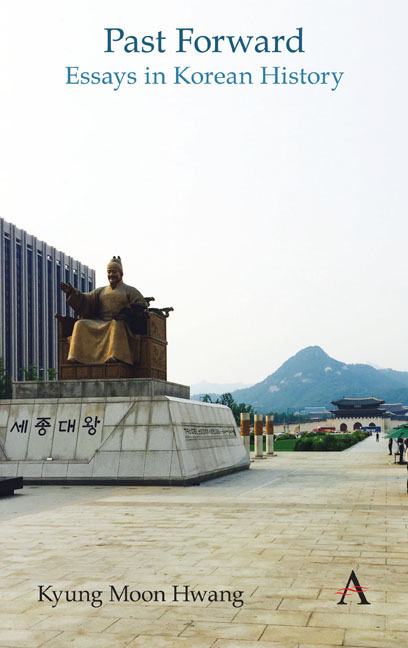Book contents
- Frontmatter
- Contents
- List of Figures
- Foreword
- Chronologies of Korean History
- Themes
- Acknowledgments
- Note on Romanization and Spelling
- Part I Circulating History
- Part II Durable Traditions
- Part III Ancient Remains
- Part IV Dynastic Depths
- Part V Modern Origins
- Part VI Challenges of Nationhood
- Part VII History Makers
- 41 Demythologizing King Sejong the Great
- 42 Modern Lady Shin Saimdang
- 43 Five Potential National Heroes
- 44 A Portrait of Great Painters
- 45 Four Young Men from 1884
- 46 Na Hye-seok
- 47 Hyundai Motors and Chung Ju-yung
- 48 Yun Isang and the East Berlin Case
- 49 Ri Young-hee, Iconoclast for Democracy
- 50 Kim Young Sam's Broad Historical Appeal
- 51 Kim Dae Jung's Historic Election
- Part VIII External Presences
- Part IX Trials of Modernization
- Part X Gripped by the Past
- Index
48 - Yun Isang and the East Berlin Case
from Part VII - History Makers
- Frontmatter
- Contents
- List of Figures
- Foreword
- Chronologies of Korean History
- Themes
- Acknowledgments
- Note on Romanization and Spelling
- Part I Circulating History
- Part II Durable Traditions
- Part III Ancient Remains
- Part IV Dynastic Depths
- Part V Modern Origins
- Part VI Challenges of Nationhood
- Part VII History Makers
- 41 Demythologizing King Sejong the Great
- 42 Modern Lady Shin Saimdang
- 43 Five Potential National Heroes
- 44 A Portrait of Great Painters
- 45 Four Young Men from 1884
- 46 Na Hye-seok
- 47 Hyundai Motors and Chung Ju-yung
- 48 Yun Isang and the East Berlin Case
- 49 Ri Young-hee, Iconoclast for Democracy
- 50 Kim Young Sam's Broad Historical Appeal
- 51 Kim Dae Jung's Historic Election
- Part VIII External Presences
- Part IX Trials of Modernization
- Part X Gripped by the Past
- Index
Summary
A deep sadness spread around the world in July 2017 with the death of Liu Xiaobo, the longtime Chinese dissident who had been incarcerated since 2008, when he helped draft an online statement calling for basic democratic reforms. He was widely admired for his courage in the face of oppression and in 2009 was awarded the Nobel Peace Prize, which he was not allowed to accept in person.
In fact, the Chinese authorities immediately condemned the Norwegian government, as if it could somehow revoke a decision made by the Nobel committee, and pressured foreign governments not to publicly support Liu as he rotted away in jail. Even after he was given a medical parole for terminal cancer a month before his death, very few officials in established democracies dared call for a complete release for his final days, and likewise world leaders mostly stayed silent after his death.
Such circumstances invite comparisons to the plight of a Korean intellectual, the noted composer Yun Isang, from over a half-century ago. In the summer of 1967, Yun, along with the poet Cheon Sang-byeong, painter Yi Eung-no, and scores of other innocent people, was jailed, tortured, and forced into confessions of communist subversion in what became known as the East Berlin Case.
Yun had been one of several Korean students in Western Europe at the time who took advantage of their relative freedom of movement and association by interacting with North Koreans stationed in East Berlin. The North Koreans of course had an interest in using these occasions to spread propaganda, and Yun even accepted an invitation to visit North Korea in 1963. He saw this as an opportunity to see some of the celebrated Goguryeo wall paintings that could inspire his music, a blend of Korean and Western conventions.
The East Berlin Case was triggered in May 1967 when another such visitor, Im Seok-jin, turned himself in directly to the South Korean president, Park Chung-Hee (who had just been reelected), and revealed details of the relationships centered in the North Korean embassy in East Berlin. The sensationalistic incident that exploded two months later showed well South Korea's ongoing descent into authoritarian rule.
- Type
- Chapter
- Information
- Past ForwardEssays in Korean History, pp. 142 - 144Publisher: Anthem PressPrint publication year: 2019



